Space
Sign up for our newsletter
We summarize the week's scientific breakthroughs every Thursday.
-
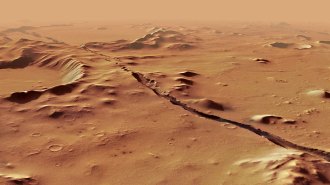 Planetary Science
Planetary ScienceMarsquakes hint that the planet might be volcanically active after all
Seismic data recorded by NASA’s InSight lander suggest molten rock moves tens of kilometers below the planet’s fractured Cerberus Fossae region.
-
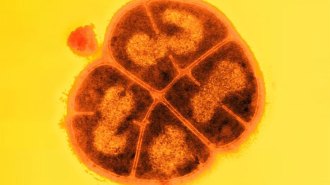 Microbes
MicrobesAncient bacteria could persist beneath Mars’ surface
Radiation-tolerant microbes might be able to survive beneath Mars’ surface for hundreds of millions of years, a new study suggests.
By Sid Perkins -
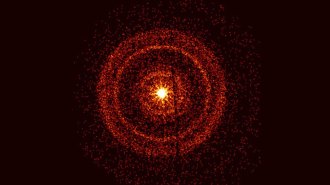 Astronomy
AstronomyMeet the BOAT, the brightest gamma-ray burst of all time
Probably triggered by a supernova in a remote galaxy, the burst detected on October 9 could challenge theories about these brilliant blasts.
-
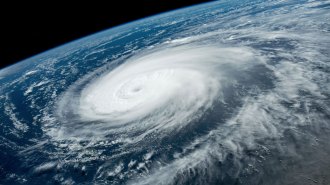 Earth
EarthParticles from space provide a new look inside cyclones
Cosmic rays that smash into the atmosphere make muons that are sensitive to changing air pressure inside storms.
-
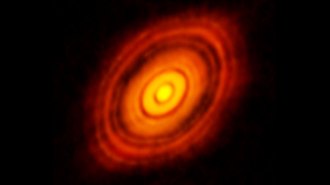 Astronomy
AstronomyMost stars may have much more time to form planets than previously thought
Planet-making disks may survive around most young stars for 5 million to 10 million years — more than double a previous estimate.
By Ken Croswell -
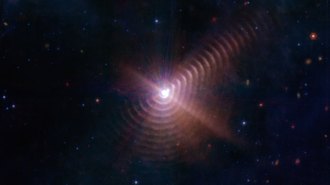 Astronomy
AstronomyFor the first time, astronomers saw dust in space being pushed by starlight
Images collected over 16 years reveal that dust expelled from a well-known binary star system is hurried on its way by light from those stars.
-
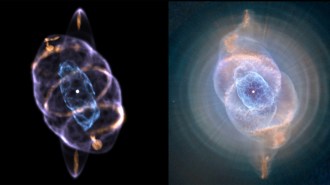 Astronomy
AstronomyA 3-D model of the Cat’s Eye nebula shows rings sculpted by jets
The Cat’s Eye is one of the most complex nebulae known. A 3-D reconstruction reveals the source of some of that complexity.
-
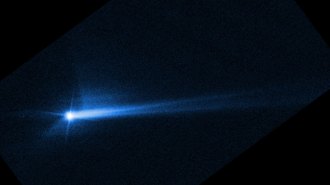 Planetary Science
Planetary ScienceNASA’s DART mission successfully shoved an asteroid
Data obtained since the spacecraft intentionally crashed into an asteroid show that the impact altered the space rock’s orbit even more than intended.
-
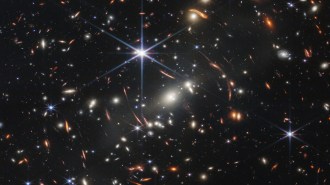 Astronomy
AstronomyThe James Webb Space Telescope spied the earliest born stars yet seen
The stars, found in the first released science image from the James Webb Space Telescope, probably winked into existence about 13 billion years ago.
-
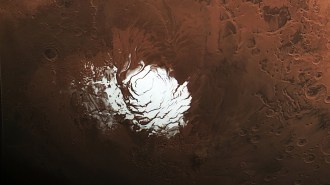 Planetary Science
Planetary ScienceMars’ buried ‘lake’ might just be layers of ice and rock
Evidence grows that possible detections of liquid water buried near Mars’ south pole might not hold water.
-
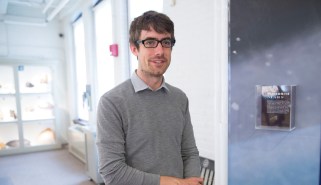 Planetary Science
Planetary ScienceRobin Wordsworth re-creates the atmosphere of ancient Mars
Robin Wordsworth studies the climates of Mars and other alien worlds to find out whether they could support life.
By Nikk Ogasa -
 Science & Society
Science & SocietyBig questions inspire the scientists on this year’s SN 10 list
These scientists to watch study climate change, alien worlds, human evolution, the coronavirus and more.